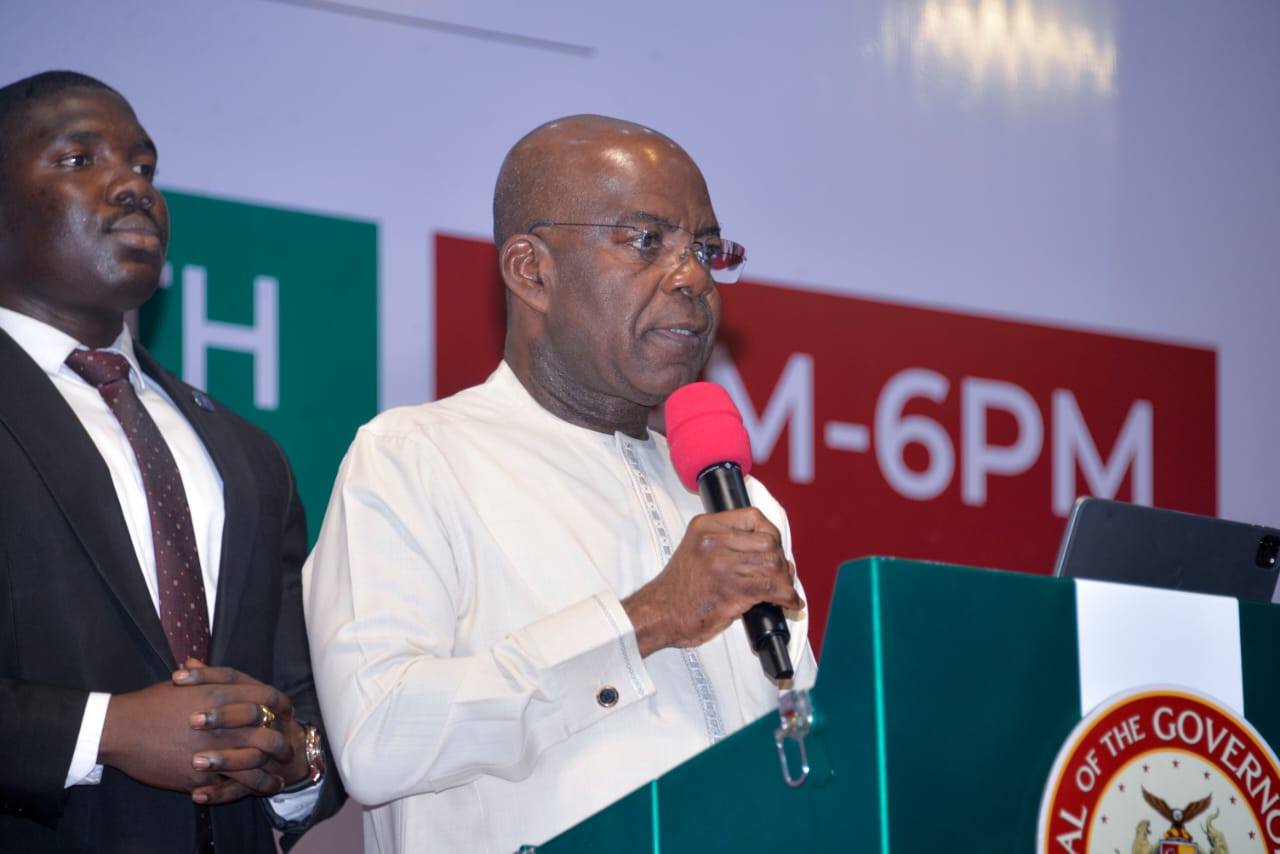Dike Onwuamaeze
With lending and exchange rates skyrocketing amid high inflation rate, the Chief Executive Officer of Centre for the Promotion of Private Enterprise (CPPE), Dr. Muda Yusuf, has called on the Central Bank of Nigeria (CBN) to moderate its market oriented monetary policy in order to protect the real sector of the economy.
Yusuf made the call over the weekend when he spoke at the Association of Corporate Treasurers of Nigeria’s (ACTN) ‘Members Networking and Breakfast Meeting’ with the theme, “Connect and Grow.”
According to him, part of the challenge of this market principle is that it seemed, “to penalise people who are in production, which is counterproductive. Some investments in bonds and treasury bills are tax free while tax people are busy chasing manufacturers all over the places.”
He said that it would be very hard for any business in the real sector, especially manufacturers and farmers, to thrive with an interest rate of over 32 per cent and currency depreciation that has moved from nearly N500 to Dollar in June 2023 to over N1,600 per dollar currently since the return to orthodox monetary policy.
According to him, the current monetary policy stance of the central bank is promoting speculative investors who are reaping good margins from investing in fixed income assets, Treasury Bill, etc. at the expense of investors in the real economy.
He said: “The whole idea of monetary policy is to manipulate money supply to be able to bring down inflation. That is what the CBN is doing. You said that there is high prices and foreign exchange instability. The CBN believes that they are happening because of growth in money supply. And that the way to go is to come up with policies that will make it difficult for people to borrow money so that there will be less money in the system.
“This will yield reduction in inflation and stability in the exchange rate. But whether this has achieved the result is a different matter entirely. What we have seen over the past few years are efforts to have contrationary monetary policy by mopping up liquidity through increase in CRR and MPR, open market operation.”
Yusuf said that the transition from unorthodox to orthodox monetary policy has caused shocks beyond what most business analysts have imagined.
He, therefore, called for, “fine tuning and recalibrating the reform process because nothing is perfect.”
According to him, “today lending rate has gone up to over 34 per cent under the market driven monetary policy. No matter whether you are manufacturing or you are in agriculture or real estate etc. you cannot borrow under the current interest regime and make any sound return on investment.
“Whether you are a manufacturer importing raw materials or a wealthy individual importing a limousine, both of you will be buying FX at the same rate. It is debatable if this model is the right thing?”
Yusuf said that the unintended consequence of the return to orthodoxy included exit of the multinational manufacturing concerns and many big corporate entities that are entangled in huge foreign currency risk.
He said: “The impact is systemic across all sectors. It is worse for businesses that have foreign exposures. That is why most of these multinationals are leaving. Because when they convert their revenue to dollar it becomes peanuts. That is why they are leaving.
“The social cost of orthodoxy has been very high. One of the biggest factors in inflation that we are experiencing today is the exchange rate. The economy is highly sensitive to exchange rate movements. The implication of the latest MPC decisions is that it has made the financial situation tighter. As treasury people I doubt if this is a good time to get your company to borrow money from the banking system.
“Understanding this concept is very critical for you as corporate treasurers because many policy developments are double edged swords. Some people are smiling and others groaning. Some people are just moving money from bonds to treasury bills and are billionaires. It is not particularly a good thing to have an economy that is rewarding that kind of investment.
“We need to structure the economy to reward people who are producing and creating jobs, who are generating multiplier effects for the economy. This is the problem some of us have with this monetary policy stands, especially the narrow view that the only way to bring down inflation is to continue to make it difficult for people to access credit.”




